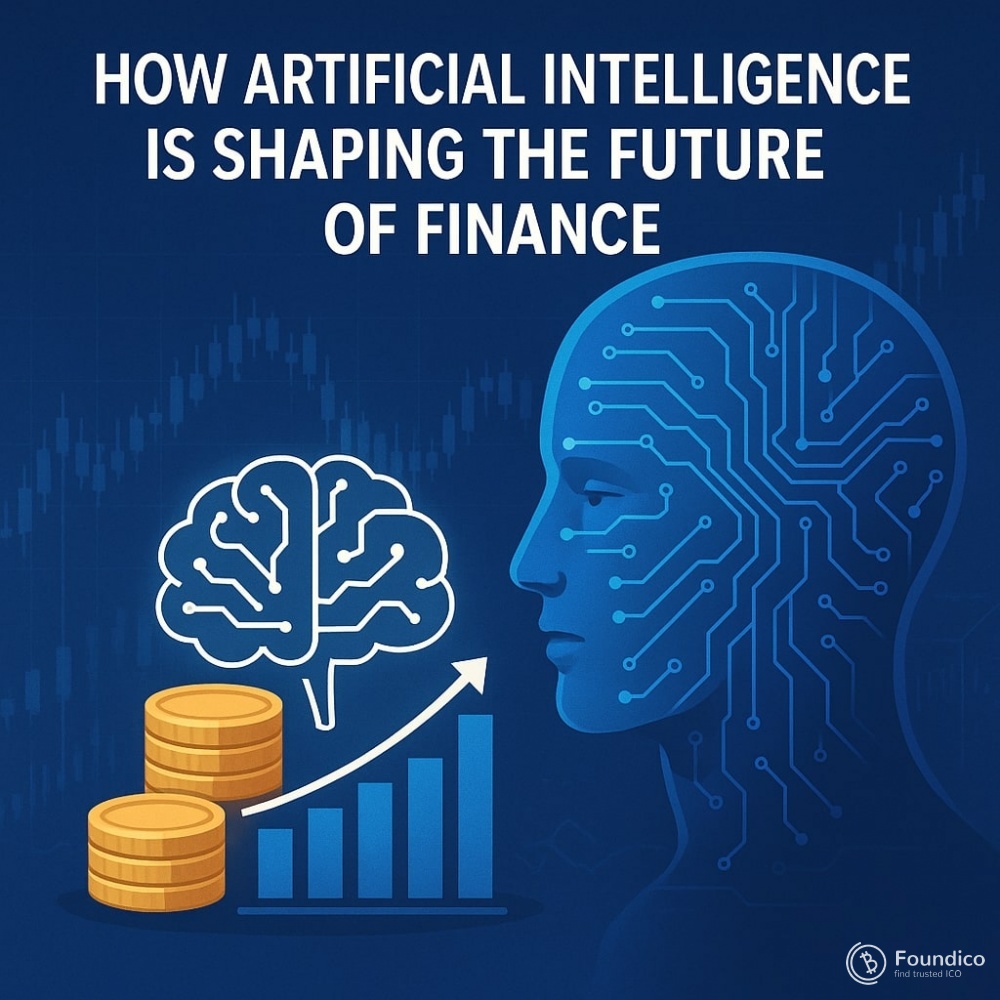How Artificial Intelligence Is Shaping the Future of Finance

By Dr. Pooyan Ghamari, Swiss Economist and Visionary
Artificial Intelligence (AI) is rapidly transforming every sector of the global economy, but its impact on finance is especially profound. From algorithmic trading and risk management to customer service and fraud detection, AI technologies are redefining how financial institutions operate and serve their clients. This article explores the multifaceted ways AI is shaping the future of finance and the broader economic landscape.
The AI Revolution in Financial Services
AI encompasses a broad set of technologies—including machine learning, natural language processing, and predictive analytics—that enable computers to learn from data, recognize patterns, and make decisions with minimal human intervention. Financial services have quickly adopted AI to improve efficiency, reduce costs, and deliver personalized experiences.
Enhancing Decision-Making and Risk Management
One of the most significant applications of AI in finance is in decision-making. Financial markets generate vast amounts of data every second, making it impossible for humans alone to analyze effectively. AI-powered algorithms can process and interpret this data in real-time, identifying trends, forecasting market movements, and optimizing investment strategies.
In risk management, AI models assess creditworthiness, predict loan defaults, and monitor portfolio risks with far greater accuracy than traditional methods. This capability enables banks and financial firms to minimize losses and comply with regulatory requirements more effectively.
Revolutionizing Customer Experience
AI-driven chatbots and virtual assistants have transformed customer service in banking and finance. These tools offer 24/7 support, answering queries, facilitating transactions, and providing financial advice with natural conversational interfaces. This not only enhances customer satisfaction but also reduces operational costs for institutions.
Moreover, AI enables hyper-personalization. By analyzing customer behavior, spending patterns, and preferences, AI systems can tailor financial products and recommendations to individual needs, creating a more engaging and relevant experience.
Fighting Fraud and Ensuring Security
Financial fraud is a persistent and costly problem. AI systems excel at detecting anomalies and suspicious activities by analyzing transaction patterns and user behavior. Machine learning models can identify potential fraud in real-time, preventing unauthorized transactions and protecting both consumers and financial institutions.
In cybersecurity, AI tools continuously monitor networks for threats and adapt to new attack methods, reinforcing defenses in an ever-evolving digital landscape.
Automating Back-Office Operations
Behind the scenes, AI automates many back-office functions such as compliance checks, regulatory reporting, and data entry. This reduces human error, speeds up processing times, and allows staff to focus on higher-value tasks. Robotic process automation (RPA), powered by AI, is streamlining these workflows across banks, insurers, and asset managers.
Challenges and Ethical Considerations
Despite the many benefits, the integration of AI in finance is not without challenges. Data privacy, algorithmic bias, and transparency in AI decision-making are critical concerns. Financial institutions must ensure that AI models are fair, explainable, and comply with legal frameworks.
Additionally, the rapid pace of AI adoption raises questions about workforce displacement and the need for new skills and training in the financial sector.
The Future Outlook
Looking forward, AI will continue to deepen its footprint in finance, driving innovation and reshaping business models. The convergence of AI with other technologies such as blockchain, Internet of Things (IoT), and quantum computing will unlock new possibilities.
AI-powered decentralized finance (DeFi) platforms, predictive analytics for sustainable investing, and real-time regulatory compliance are just a few areas poised for growth. As these technologies mature, collaboration between technologists, regulators, and financial professionals will be essential to harness AI’s full potential responsibly.
Artificial Intelligence is not just a tool but a catalyst redefining the future of finance. Its ability to analyze massive data sets, automate complex processes, and enhance customer engagement is creating more efficient, secure, and inclusive financial systems.
As a Swiss economist and visionary, I see AI as a cornerstone of the evolving financial landscape—one that promises to empower institutions and individuals alike, driving economic progress and innovation in the decades to come.
